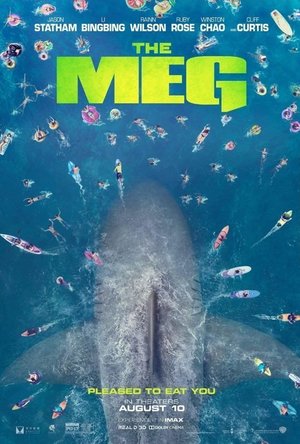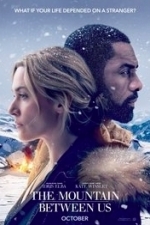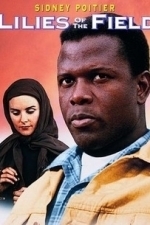
Coach's Eye - Video Analysis
Sports and Health & Fitness
App
Video doesn't lie. Get Coach's Eye today and see your performance improve immediately! ...

Cupcakes For All
Food & Drink and Entertainment
App
A collection of 109 brilliant cookery lesson videos on how to make great Ciupcakes Lessons include:...

The Blender Girl Smoothies - Easy, Healthy Smoothie Recipes
Food & Drink and Health & Fitness
App
The Blender Girl and her healthy, blender-centric recipes have taken the world by storm—in this...

Hannah's High School Crush
Games and Education
App
Hannah wants to look gorgeous on the first date with her secret high school crush Jack! Get ready...

Thinkrolls
Education and Games
App
Set your child's mind in motion! Thinkrolls are the 26 smart characters in this award-winning app...
Bob Mann (459 KP) rated The Meg (2018) in Movies
Sep 28, 2021
Jason Statham – the unthinking man’s Dwayne Johnson – plays our hero Jonas Taylor. (Jonas? Surely some sly joke?). Jonas is drinking his life away in Thailand after being traumatised by an underwater rescue mission in which he was 90% successful. (Yeah, I know. Bloody perfectionists. Hate ’em). But he is needed again, since his cute ex-wife Lori (Jessica McNamee) is stuck at the bottom of the sea being terrorised by a terrifying creature: no, not Spongebob Square Pants… the titular prehistoric shark.
Lori is working at an undersea research station – Mana One – off the coast of China, funded by the annoyingly brash billionaire Morris (Rainn Wilson, from “The Office”), who you just HOPE HOPE HOPE will get munched at some point!
Running the station (in the most shameless Hollywood/Chinese market crossover since “The Great Wall“) is Zhang (Winston Chao) assisted by his cute daughter Suyin (played by the gloriously named and very talented Bingbing Li) and his even cuter granddaughter Meiying (Sophia Cai). The race is on to use their brains and Taylor’s brawn to stop the monster from reaching the seaside resort of Sanya Bay for lunch.
The action is, of course, absurd with so many near misses for Jonas from gnashing teeth that he could be The Meg’s registered dentist. There is a really nice dynamic though built up between Jonas, his potential cross-cultural love interest Suyin and young Meiying. Suyin is a classic TimesUp heroine for 2018, with an assertive f***-you attitude and not remotely giving an inch to Statham’s hero.
But it’s young Sophia as Meying who really steals lines and steals hearts with a truly charming performance, and would get my ‘man of the match’ were it not for…
…research assistant Jaxx (Australian model, Ruby Rose). She has an absolutely extraordinary look in this film. Chiselled and tattooed, she literally looks like she has stepped out of a Final Fantasy video game… and acts well too: the complete package.
As referenced above, the Hollywood/Chinese crossover is quite striking in this film, with the Chinese beach location looking like Amity Island on crack! (Cue the overweight Chinese kid as the Jaws “Alex” replacement… who knew China had a child obesity issue too… and that they also have ‘Zoom’ ice lollies!) Unusually for a mainstream Western film, a significant number of lines in the film are in Chinese with English subtitles.
In the league table of shark movies, it is far nearer to “Deep Blue Sea” than it is to “Jaws”, the reigning league champion, and all are far in excess of the ridiculous “Sharknado”. But compared to “Deep Blue Sea”, and even compared to “Jaws” – now, astonishingly, 43 years old! – it’s a curiously bloodless concoction, presumably to guarantee it’s 12A certificate. I have seen far bloodier and more violent 12A’s, and if anything I think director Jon Turteltaub (“National Treasure”) rather overdid the sanitisation.
It’s not going to win many gongs at the Oscars, but it is a slice of movie fun nonetheless.
Bob Mann (459 KP) rated The Mountain Between Us (2017) in Movies
Sep 28, 2021
Elba plays Ben Bass, a neuro-surgeon stranded at Boise airport who has to get back to Baltimore for an important operation. Winslett playing Alex Martin, a famous photo-journalist, is stranded with him and equally desperate to travel as she is due to get married in New York the following day. The two club together to hire a plane from charter pilot Walter (Beau Bridges, “Homeland”, “The Descendents”). But in terrible conditions, and with a medical emergency, the plane crash lands in the snow of the Rockies, and Ben and Alex (together with Walter’s Labrador) need to struggle to survive in the wilderness. The problem is that they are an odd couple, and constantly wind each other up the wrong way.
It’s a well-worn tale that has been portrayed many times before in films like “Alive” and “The Grey”, so what makes the film live or die is the quality of the screenplay and the chemistry between the characters. Unfortunately the former by Chris Weitz (co-writer on “Rogue One“) is rather clunky, and in the latter case I just didn’t feel it. Winslett’s character is just so goddamn whiney and annoying that the thought of Ben doing anything with her other than hitting her with the shovel and feeding her to the dog seems unlikely! Winslett seems to sense that too, since I never felt she was completely invested in her character. Aside from one (impressive) monologue, I found it to be a so-so performance from her.
Aside from Elba the other star of the show is the landscape of the High Uintascape in North East Utah of the which is beautifully filmed, on location by Mandy Walker (“Hidden Figures“).
The story leaps from improbability to improbability and raises more questions than it answers: in a survival situation should you walk or stay put? If you have a dog, should you eat it* and what condiments are appropriate? Does an iced-over river have any current flowing under the ice? If they both died, would the audience care?
No spoilers with answers to any of these (*apart from the dog… just joking, they don’t!) , but the ending is as corny as you can get… but it still gave me a lump in my throat. #suckered!
Directed by Hany Abu-Assad, overall if you have a rainy afternoon you need to fill then this a perfectly pleasant movie to veg in front of, but it neither completely satisfies as a romance nor as an adventure flick but falls rather uncomfortably between the two stools.
BankofMarquis (1832 KP) rated Lilies of the Field (1963) in Movies
Jan 31, 2022
Written by James Poe from the Novel by William E. Barrett, LILIES OF THE FIELD tells the tale of a drifter who is the answer to a Nun’s prayer. Praying to the God that she believes in, she asks for help in getting a Church built in the desert in Arizona.
Simply Directed by Ralph Nelson (fresh off his success with REQUIEM FOR A HEAVYWEIGHT), Lilies of the Field is a positive life (and faith) affirming film from start to finish that will touch your heart…and your soul.
Poitier stars as handyman Homer Smith who’s car breaks down where a group of Nuns are trying to start a parish (and get a church built). Following the machinations of Mother Maria (Lilia Skala - in an Oscar nominated turn of her own), Homer never leaves and ends up being inspired - and inspiring others - to get this church built.
But it is the journey - not the destination - of this film that matters. Homer is thwarted time and time again by Mother Maria in his attempts to leave and his protestations that this is the “final job, then I’m leaving” is met with steeled determination by Mother Maria who has an unflappable belief that Homer is the answer to her prayers.
This film hangs on the relationship between Homer and Mother Maria and these 2 fine actors deliver the goods. Poitier is a deserved winner of the Best Actor Oscar (though he would fret for years that his win was a “token” win - which it is not). His Homer Smith is charming and forceful with a “lost” look in his eyes when he first arrives in the desert. This, in turns, changes to fierce determination to get that church built.
The real hero of this film is the under-rated performance of Skala (who did a series of TV Guest star appearances in the 50’s, 60’s and 70’s but never really had a movie role - before or since - that would rival this one). It would have been tempting to make Mother Maria a one-note ice queen in her dogged determination - and belief - that Homer was sent by God, but in the hands of Skala there is a warmth in her eyes that serves as a counterbalance to her resolve.
It is the relationship of these 2 characters - and the ramifications of this relationship to the parish community - that is the soul of this film, and this soul runs deep. The relationship between Homer and Mother Maria is not, exactly, a friendship, but more of a strong work bond. 2 persons united in a common goal - for the common good.
Not the fastest moving of all films you will view, but the heart and soul that is at the center of this film - along with 2 very strong central performances - will warm your heart.
Letter Grade: A-
8 stars (out of 10) and you can take that to the Bank(ofMarquis)




